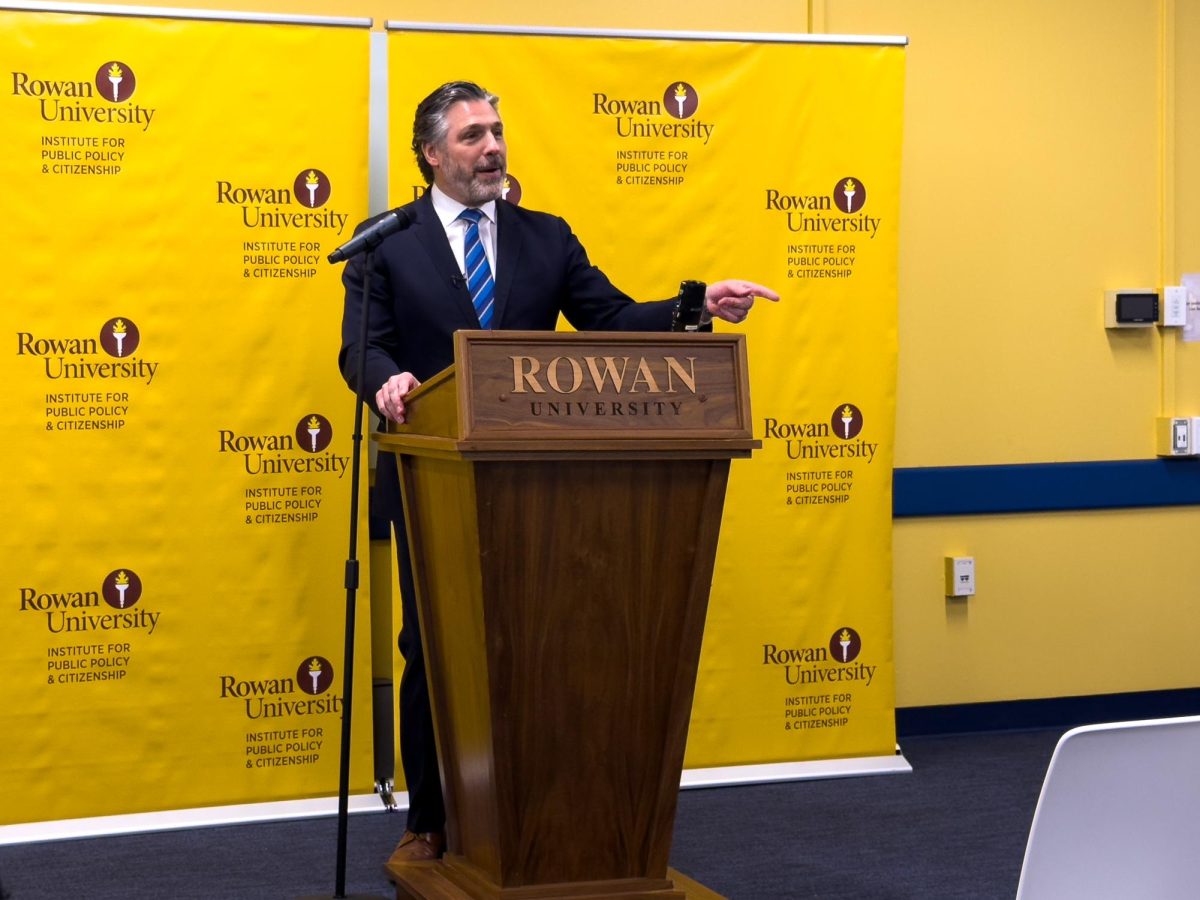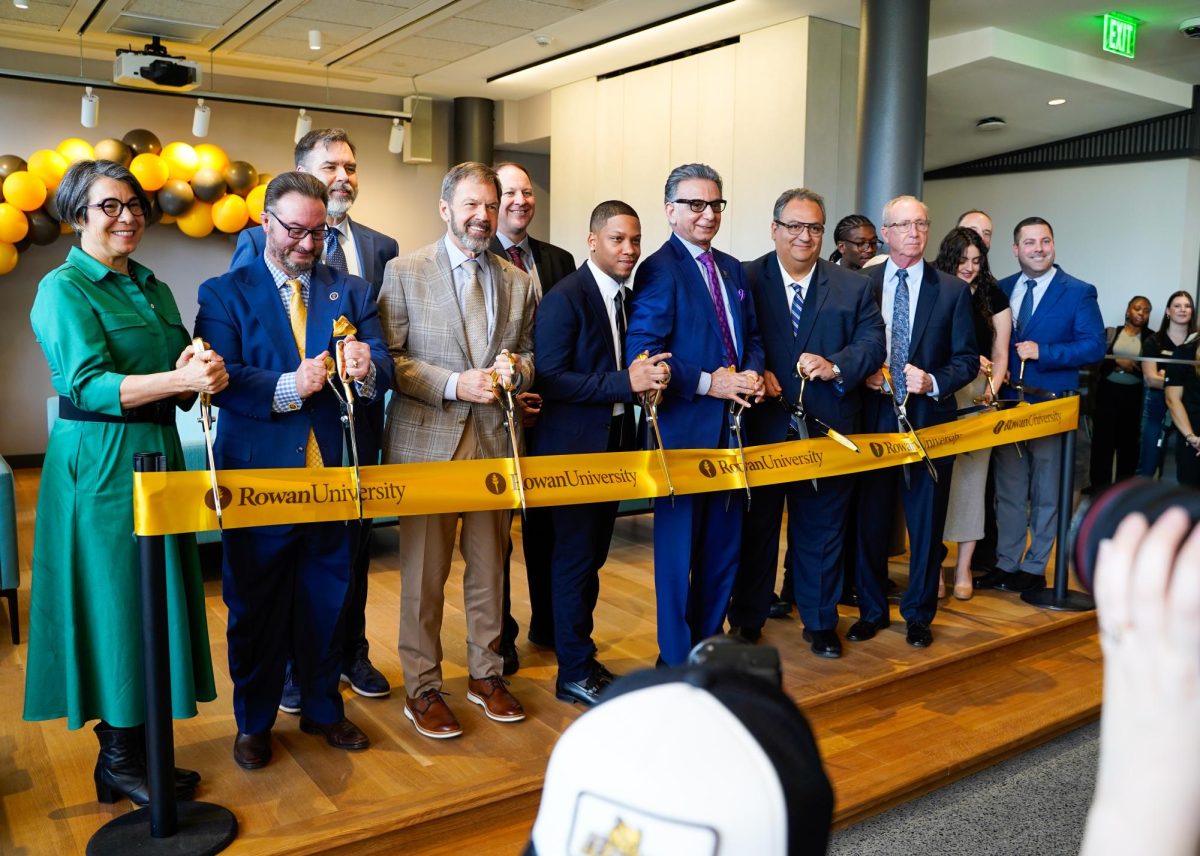The Rowan Institute for Public Policy and Citizenship (RIPPAC) welcomed students to their Fall 2025 Open House and Information Session this past Tuesday.
Professor Benjamin Dworkin, the founding director of RIPPAC, hosted the session and introduced a new initiative for the club this school year: an engagement team where students can feel comfortable being a part of the club.
The open house began with everybody receiving slips of paper containing necessary information about what RIPPAC offers, one of which listed several intern scholarship opportunities, all fundraised by Dr. Dworkin and RIPPAC, that club members could earn for next summer. For instance, the Dr. Bruce Caswell Scholars Fund is set to provide $1,000 tuition scholarships to 9 students, which is double the amount that the fund offered last year, and the Rick Rosenberg Jr. Memorial Scholarship Fund offers $2,500 tuition scholarships to 3 different students who take on unpaid political internships for the summer.
“At RIPPAC, we prioritize networking,” said Dworkin. “This group right here in front of you are going to help you 20 years from now, no matter what you do.”
Also new to the club this year are four core values that Dworkin explained RIPPAC emphasized most: vision, service, teamwork, and, most importantly, fun.
“RIPPAC has been around since 2018, but our legacy of public service is a century-old tradition,” Dworkin said.
Dworkin later introduced the special guest for the evening, Michael Acevedo, a lobbyist who currently works in Public Strategies for Cozen O’Connor, an international law firm based in Center City Philadelphia, at their office in Cherry Hill.
Acevedo spoke about what his experience at Rowan was like, how he got involved with internships as a student, and how his work experiences following graduation shaped him into the person he is today.
“There’s a lot of paths I could have taken when it comes to government affairs or lobbying, as Dr. Dworkin said. You could go and work for in-house lobbyists, which is any kind of big companies you could think of; McDonald’s, Walmart, utilities like Atlantic City Electric,” said Acevedo. “I decided to go the contract lobbyist route, so that means I have a set of clients, and I facilitate meetings with people that they need, whether that’s in the governor’s office, whether that’s in the legislature, whether that’s state and local government relations, and I got hired because of my network.”
Dworkin listed the number of RIPPAC events that would be taking place over the course of the semester, such as resume writing workshops, RIPPAC’s Speaker Series which hosts major political figures in an open dialogue with Rowan’s community, and additional open houses where students that are a part of the club, or at the very least are looking to be a part of it, can volunteer.
Dworkin played a video for the students highlighting the events that took place for RIPPAC the previous year, showing them all of the ways that they could possibly get involved.
“I know the caliber of the program, and I know that the attendees who are participants are going to be well-prepared for their futures and anything that their career throws their way,” said Chrissy Buteas, the President and CEO of the HealthCare Institute of New Jersey.
The majority of the students who attended RIPPAC’s open house were first-year or transfer students; the rest of the crowd was composed of returning RIPPAC members. Most of the students hailed from different parts of New Jersey, though a select few mentioned being from other states in the country, such as Massachusetts and California, and one even being an international student from Ecuador.
“RIPPAC is a place to make connections. Whether you’re a Democrat, whether you’re a Republican, whether you don’t know, or something in between,” said Dworkin.
Acknowledging how diverse the incoming wave of RIPPAC students were, Dworkin urged that the club was something that anyone could be a part of, something that any student could join and network with other students as a way of building connections that they can use for the rest of their lives, not just for the few years after graduation where they find their footing in the political world.
“This whole enterprise about government and public issues and things that concern everybody’s community, way too important to leave to just poli-sci majors,” said Dworkin. “RIPPAC is multidisciplinary, which is the fancy word of saying it’s not just for poli-sci majors, alright? Every discipline: engineering, history, biology, etc. Whatever it is, you’re all allowed, because politics affects us all.”
For comments/questions about this story, DM us on Instagram @thewhitatrowan or email arts@thewhitonline.com

























































































































































!["Working with [Dr. Lynch] is always a learning experience for me. She is a treasure,” said Thomas. - Staff Writer / Kacie Scibilia](https://thewhitonline.com/wp-content/uploads/2025/04/choir-1-1200x694.jpg)















































